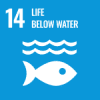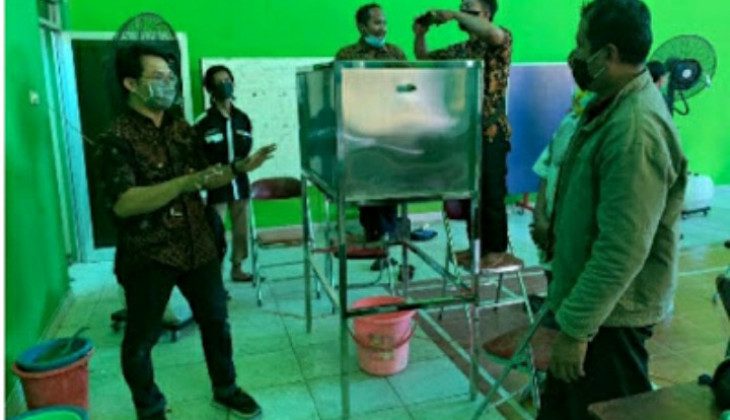The Aquatic Research Group Laboratory of Animal Development Structure, Faculty of Biology, UGM conducted socialization and training on cultivating wader pari fish for the community in Karangmojo Hamlet, Trirenggo Village, Bantul Regency, Yogyakarta some time ago.
Dr. Bambang Retnoaji M.Sc., the supervisor of the Aquatic Research Group Laboratory of Animal Development Structure, Faculty of Biology UGM, said that the training was carried out to disseminate local fish farming technology to the public. In the future, it is hoped that it can be widely developed and applied for the welfare of the community and the preservation of Indonesia’s living natural resources. Especially during the Covid-19 pandemic, it can be an alternative solution for the economic recovery of the affected community.
“More people who know this wader fish farming method and then implement it will be very beneficial for improving people’s welfare. At the same time, it is hoped that it can support national food security, especially in Yogyakarta,” he said.
The Aquatic Research Group team has developed wader pari cultivation since 2014. The spawning, breeding, and breeding processes are carried out in laboratories, and mass-scale cultivation is conducted in outdoor ponds in collaboration with local fish farmers and farmer groups in Sleman, Gunungkidul, and Kulon Progo areas.
Meanwhile, the training activity this time was initiated by Agus Sumartono S.Si., as the protector of local community groups. This activity is carried out while still implementing health protocols, such as checking body temperature, washing hands, using masks, and physical distancing.
The activity began with a brief introduction to the biological information of the wader pari, the development of fish farming, and the maintenance strategy. Next, a demonstration of wader pari spawning was carried out by the Aquatic Research Group team.
The prototype of the wader pari spawning tool that the Aquatic Research Group has developed was also shown in this activity. The device results from the development in collaboration with the fish farmer group “Santan Mina Lestari” using CSR funds from PLN Peduli.
“The enthusiasm of the residents is quite large because in Bantul there has never been a wader pari cultivation,” he said.
Not only providing training, on that occasion, the training participants also arranged activities for the sustainability of the training program. Some of them include division of pond area and preparation of distribution of seeds and broodstock that the group will use to start cultivation.



